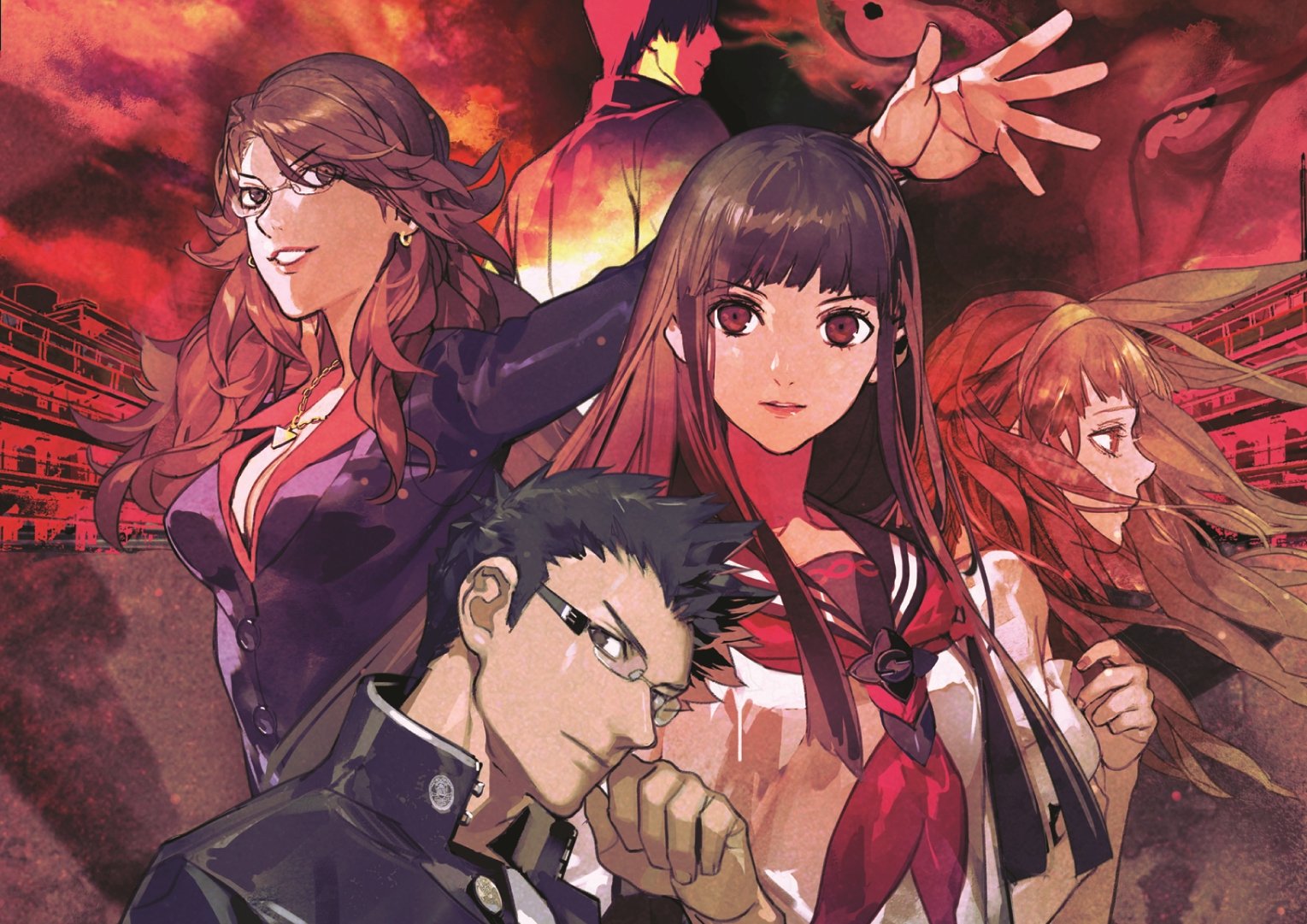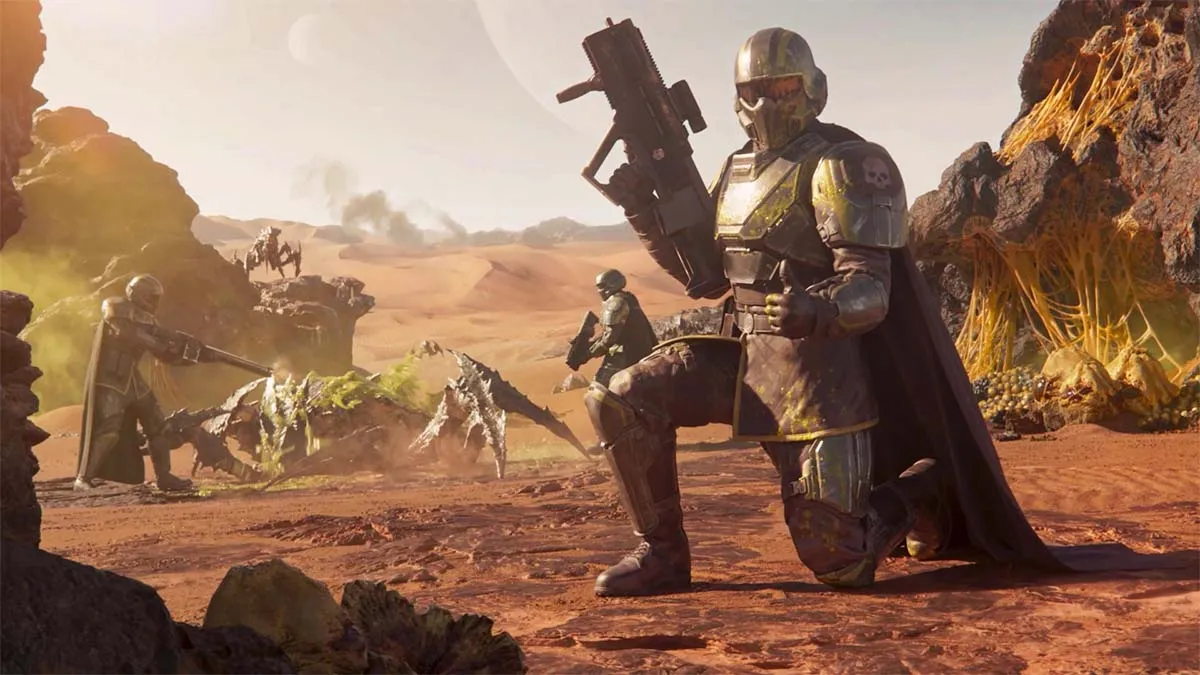‘cuz bustin’ makes me feel かっこいい
It’s only been a year or so since Tokyo Twilight Ghost Hunters first released, but now we’ve got Tokyo Twilight Ghost Hunters: Daybreak Special Gigs to deal with. Even taking into account the Japanese game industry’s penchant for putting out enhanced rereleases of games, that’s a rather quick turnaround.
Now the game is available on all extant PlayStation platforms, it it is worth picking up? Are the titular “daybreak” additions to the story and gameplay of the original enough to give Tokyo Twilight Ghost Hunters a bit more time in the sun?

Tokyo Twilight Ghost Hunters: Daybreak Special Gigs (PS4, PS Vita [Reviewed], PS3)
Developer: Arc System Works and Toybox
Publisher: Aksys Games (NA), NIS America (EU)
Released: September 20, 2016 (NA), October 21, 2016 (EU)
MSRP: $39.99 (PS3/Vita), $49.99 (PS4)
For fans who’ve played the original game, the question of whether to get Daybreak Special Gigs is pretty simple to answer. Frankly, it depends entirely on how much one liked the original and whether they’d want more of that, because that’s basically what this is. A new story scenario, new characters, and new options for the combat system are all fine and dandy, but they don’t really paper over the cracks in the design the way, say, Persona 4 Golden did for the original Persona 4. And unlike the expansions typically bolted onto the likes of hunting games, the raw amount of content present is fairly modest overall. As such, the value proposition remains largely unchanged from Brittany Vincent’s original review.
Everyone else, though, can look forward to the an inventive visual novel tha just so happens to be one of the best attempts yet by anyone to make a “Ghostbusters Simulator”. Indeed, as it turns out, the ideal way to capture the feeling of professional exorcism squad is to create a strategy game of sorts.
Indeed, this is where the bulk of Daybreak Special Gigs‘ gameplay lies, as the rest of it, bar one major mechanical twist, is a fairly standard visual novel. Cast as the newest transferee to Kurenai High School, players are badgered into working for Gate Keepers, an Occult Magazine-cum-GhostHunting Agency staffed by eccentrics and other sensitives. The game is frame almost explicitly like players were instead watching an anime series, complete with an episodic structure, cold opens, and an intro sequence. It successfully invokes the TV anime boom of the early 2000s, though the writing, while above average for most localized visual novels, doesn’t really stand out all that much.
Thankfully, the visuals do stand out, thanks to excellent art direction. This isn’t the first visual novel to breathe some life into its 2D sprites by using limited animation, but it works here (unlike, say, in some recent Compile Heart titles that tried the same trick) thanks to the game’s more painterly art style. That, combined with an aesthetic sense inspired by what seems to be almost anime-styled take on Scooby-Doo at times (complete with a signature “Mystery Machine”-style van), and an excellent punk-rock-inspired soundtrack, gives the game a truly unique sense of style.

It’s too bad that the more in-depth attempts at mechanical innovation don’t feel as well-executed on as the art style. For example, the game’s approach to dialog, where the conventional list of pre-written responses is replaced by two elaborate option wheels, where players must select their response to any given situation as a combination of one of the five senses and an emotional state. As a result, much of my initial playthrough consisted of a lot of “friendly tasting”. Players who expect their game leads to not come across as some combination of silent protagonist and Lickitung may be disappointed.
The rest of the game is spent in combat against various ghosts, but rather than an action game about not crossing the streams or something, Tokyo Twilight Ghost Hunters frames ghost battles like a strategy game, taking place on a map of a haunted location. Before combat, players can buy various traps and anti-ghost devices to place, attempting to predict the ghosts’ behavior and restrict their movements. That’s because the ability to detect ghosts isn’t very reliable, with the members of Gate Keepers “fighting” ghosts by pretty much swinging away at empty air until they hit something properly ectoplasmic. At least, that’s the impression one gets when actually fighting in the combat portion of the game, since both ghosts and people take their turns simultaneously. Trying to forecast a ghost’s movement and having a squaddie swinging their weapon in the area where it will be is the key to success as a ghost hunter, apparently, as is stacking the deck by, for example, blocking off their escape routes with purified salt barriers, or using electromagnetic detectors to tell when they’ve teleported to a different part of the field.
But ghost hunting is a business, too, and players can’t just set traps willy-nilly without concern as to the budget. The Gate Keepers need to ensure that the take from any given case actually makes the company a profit. In the midst of all that, they’ve got to avoid doing too much collateral damage, as every table destroyed or radio smacked by a wayward swing of a sanctified iron pipe comes out of the case’s budget.

It’s a really interesting execution on the idea, though visually, it’s not all that interesting, looking a bit like a vintage strategy game but for some PS1-level 3D “combat” animations. One might think that a developer with a mind to make this game’s combat and logistics into its own full game instead of tying it to a visual novel would really be onto something.
One issue with the combat is that even with some extra refinement, tools, and tweaks from the Daybreak Special Gigs, the strategy never really feels more involved than guesswork, not much more than an elaborate take on Battleship in some ways. For players more interested in the narrative side of things, combat missions can be an overly difficult distraction. And by default, the Daybreak scenario’s battles tend to assume a certain mastery of the systems, to boot.

Ultimately, Tokyo Twilight Ghost Hunters: Daybreak Special Gigs is more of Tokyo Twilight Ghost Hunters, for better as well as for worse. The changes to the systems aren’t enough to alleviate some of the frustration of the original, but for players that are open to the experience (or who enjoyed things the first time around), there’s a lot to like about it.
[This review is based on a retail build of the game provided by the publisher.]





